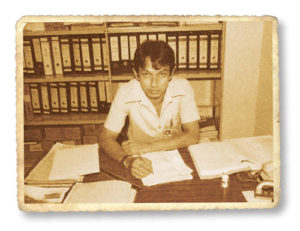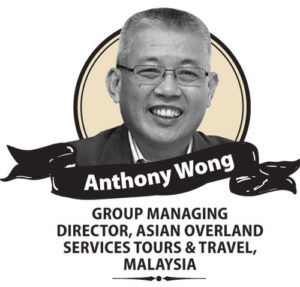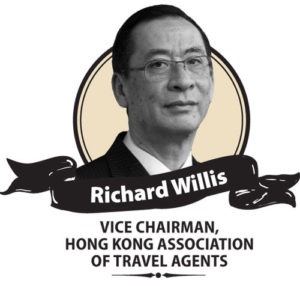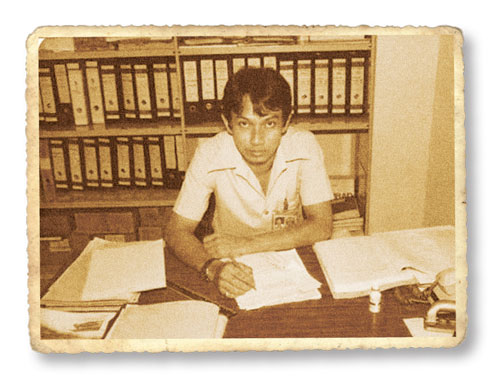How was travel sold? Why was it fun? What made it memorable? Tourism and hospitality veterans reminisce the good old days with anecdotes that will make you gasp in disbelief and ponder whether the industry has changed for the better
In the late ‘70s/early ‘80s, the Far East was still new. There was a real sense of discovery, not just in sourcing new products but also in explaining the appeal to clients. In many areas, you were just looking at a handful of hotels whereas now you have over 100.
At most hotels, you were dealing with a director of sales who could make instant decisions and had the full trust of the owners. This was way before rigid automation/yield controllers came into fashion! It was fun as you could be creative and innovative, it was not just sold on the lowest price.
There was more unity and cooperation between the operators, hotels and airlines. We all wanted the business, but the hotels felt the best way to sell their product was through the tour operator. Hardly any clients booked direct with hotels.
Obviously the introduction of the web changed much of this, and now hotels almost seem to be working in competition to operators, doing their utmost to attract direct customers.
On client habits, the biggest change is, in the past there was an appreciation of your time and knowledge – and almost a guilt factor should the booking not proceed. It is vastly different now. Clients
now seem to think of the trade as a free consultation service, to verify what they might have heard or read. There is no embarrassment about taking an hour of your time without the ‘reward’ of a booking. Ironically this is coming from clients who in their own professions charge by the hour (e.g. lawyers, doctors, etc). Due to the Internet, everyone seems to be an ‘expert’, but with extremely selective vision and hearing! – David Kevan, director, Chic Locations UK on how the overall business of selling travel has changed. Read on for more personal reflections by Kevan and others.
COMPETITIVE INDUSTRY BUT FULL OF HUMANITY
 One of my first introductions to the travel trade was a copy of TTG Asia 36 years ago, on May 23, 1978, when I was with Singapore Airlines (SIA). Since then, it has been my source of trade information and news. Through the news revolution from print to digital, TTG Asia has kept its focus on providing the most relevant news yet keeping up with the times to meet the needs of the new online readers.
One of my first introductions to the travel trade was a copy of TTG Asia 36 years ago, on May 23, 1978, when I was with Singapore Airlines (SIA). Since then, it has been my source of trade information and news. Through the news revolution from print to digital, TTG Asia has kept its focus on providing the most relevant news yet keeping up with the times to meet the needs of the new online readers.
As a young tour planning officer of Singapore Airlines (SIA) Tourism Development Departure, I was assigned to man the SIA Holiday booth at the first NATAS Travel Fair held at the Hyatt Hotel in 1987. It was then dominated by NTOs showcasing their destinations. Consumers came to learn about the destination before they book. It was fun working at these destinations-focused fairs. But soon the entrepreneurial minds of some of the bigger agencies made them hold their own fairs. Quickly, everyone jumped onto the bandwagon to get direct sales and price became a fierce competitive tool. With the advent of OTAs, price competition became more intense.
Technology should be a tool that makes the sales process more efficient, thus improving profitability, but somehow it does not out work out that way. Software keeps changing fast; the need to keep up means more investments which do not necessarily result in better returns. So this endless pursuit of technology at times takes the focus off the core business of travel agencies. Many tried to go high-tech but lost the high-touch.
The recent change of employment policy  (in Singapore) and its blind application across the board makes it even harder for service to be efficient. The ever-increasing demand of consumers today with decreasing tolerance levels, coupled with high costs and lack of manpower, makes it impossible to achieve the optimal equilibrium of price and service.
(in Singapore) and its blind application across the board makes it even harder for service to be efficient. The ever-increasing demand of consumers today with decreasing tolerance levels, coupled with high costs and lack of manpower, makes it impossible to achieve the optimal equilibrium of price and service.
But one thing hasn’t changed, for which I’m glad, and that is the humanity of the travel agency workforce. While fiercely competitive, we are probably one of the few industries where competitors can enjoy a game of golf, meal and party with no boundaries drawn.
The Travel Corporation brands Insight Vacations, Trafalgar Tours and Contiki Holidays have benefited immensely by working closely with all our travel agency partners for more than 30 years in Singapore. Many mentors who helped me in the early ‘80s to establish Insight Vacations in Singapore are now close friends.
Today, we do brisk walking regularly.
AND THE OPERATORS ASKED IF WE LIVED ON TREES
 My first trip to ITB Berlin was in 1978. It was so difficult then to market Malaysia and South-east Asia as the Europeans had not heard of this region. So I took out a huge map of South-east Asia and showed them where Malaysia, Thailand, Burma (now Myanmar), Singapore and Indonesia were. And the operators asked if we lived on trees. In jest, I replied: “Yes, to run from the crocodiles and tigers!”
My first trip to ITB Berlin was in 1978. It was so difficult then to market Malaysia and South-east Asia as the Europeans had not heard of this region. So I took out a huge map of South-east Asia and showed them where Malaysia, Thailand, Burma (now Myanmar), Singapore and Indonesia were. And the operators asked if we lived on trees. In jest, I replied: “Yes, to run from the crocodiles and tigers!”
Today, thanks to the good work of Tourism Malaysia and the other NTOs in this region, it is so much easier to market South-east Asia.
MY VERY FORWARD-THINKING IDEA

Back in the 1970s, I worked with P&O Travel and we were one of the very first longhaul wholesalers operating from Hong Kong to Europe under Singapore Airlines (SIA) Europe Holidays. I proposed a system of three levels of ticket fares based on group size. I needed a very good fare for a smaller group so if there were only 10-15 people travelling, I could still make the tour happen. If it was a bigger group with 30 people, we could make more money and even share the earnings with SIA. Cathay Pacific was worried as it operated only to London and Frankfurt. The idea was very forward-thinking at that time and business jumped 100 per cent while transactions grew from nothing to thousands.
CONTIKI DANCED ITS WAY THROUGH
When we launched the Contiki brand, we had only 500 brochures. We held the kick-off (party) at a disco in Causeway Bay. Using a disco was way beyond the thinking (then) and eventually we got 300 bookings, which was amazing.
I WAS YOUNG AND MORALLY ADHERED TO THIS RULE
 When we were appointed an IATA agency in 1959, there was a stipulation stressing no rebate for clients. I was young and morally adhered to this rule. That’s why for the first six years, my company hardly made any profit. IATA later sent me a letter and said that with no growth of my ticketing business, it might not renew my appointment. I later had a meeting with my staff and found that it was common practice for agencies to rebate customers and no one got caught. So I started doing this in January 1965 and the monthly turnover rose from HK$150,000 to over HK$1 million that summer. Today, the figures have mushroomed to HK$500 million per month. IATA forced me to earn money!
When we were appointed an IATA agency in 1959, there was a stipulation stressing no rebate for clients. I was young and morally adhered to this rule. That’s why for the first six years, my company hardly made any profit. IATA later sent me a letter and said that with no growth of my ticketing business, it might not renew my appointment. I later had a meeting with my staff and found that it was common practice for agencies to rebate customers and no one got caught. So I started doing this in January 1965 and the monthly turnover rose from HK$150,000 to over HK$1 million that summer. Today, the figures have mushroomed to HK$500 million per month. IATA forced me to earn money!
Additional reporting from Prudence Lui, Rosa Ocampo, Greg Lowe and S Puvaneswary
This article was first published in TTG Asia, August 8, 2014 issue, on page 5. To read more, please view our digital edition or click here to subscribe.




















